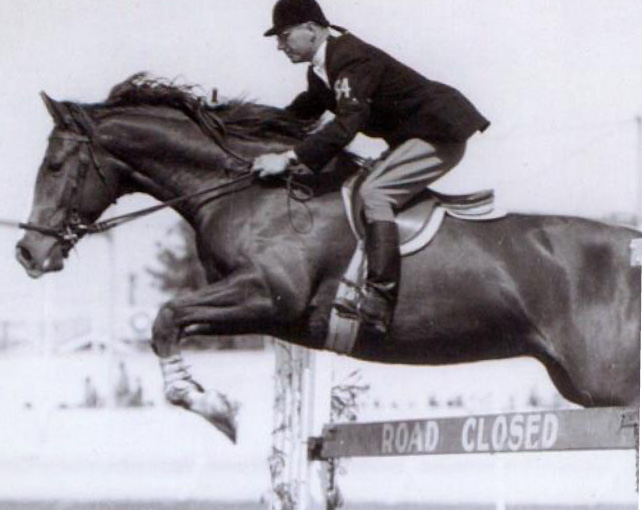On Instructors
The beginner makes quite rapid progress, and he can feel himself improving with each lesson. He learns how to sit and manage his horse, and he learns to ride at the walk, trot, and canter.
For the next two or three years he must slowly improve this basic work. He can begin jumping, but he is not yet ready for more advanced riding on the flat. The rider's progress cannot be more rapid than is the development of his mind and body. If this fact is not accepted, and the rider is taught beyond his capabilities, he will be forced into so many mistakes that it will be very difficult for him ever to become a good horseman. In all probability he will never make the necessary effort to overcome these bad habits.
This part of his riding career is one of hard work, of persistent and consistent endeavour. For a long time there is little apparent reward. The rider must achieve a steady and deep seat in the saddle to enable him to control his horse's movements by co-ordinated rein and leg aids, and to have full control of his weight. He must develop his feel so that eventually he knows exactly what his horse is doing under him... the list could go on for pages.
Many actions and reactions become instinctive. How does the rider achieve the instinctive reactions? Once learnt, it is always done like that, and quickly becomes instinctive. It is always done because it is uncomfortable not to do it. Why does the rider do all this hard work and apply this concentration? Only because he believes it will all be worthwhile, repaid by the joy and infinite satisfaction which will be his when he acquires the ability to ride a well-trained horse; when he appreciates its training and ultimately trains his own horse. The rider believes this through the inspiration of his instructor, through reading books, and through watching top riders.
But the rider must do the work. He must do the concentrating necessary to make these reactions instinctive, and he must do this without the inspiration of success, which is very slow in coming. After this we hope he will begin to feel the benefit of all his efforts. The rider will strive for an effect and get it, and know that he has done so. By then he has battled through the hardest stage.
The light dawns; our rider is no longer working in the dark just believing what the other fellow says. He has experienced some success as a result of his labours and he realizes now where he is going. The rider will still have his setbacks, but he will find where he is wrong and correct it, and before very long he will have felt the harmony and thrill of being one with a horse that is doing its best for him. He will come to the final stage and join the ranks of those who can never give up riding for as long as they are physically able.
Those of you who instruct carry a great responsibility. It is especially great because you are the teachers of our young riders, the riders who will carry Australia's flag one day.
...If you believe you can do it, and are prepared to produce the necessary effort (which is the price you have to pay) -- then you can achieve success. You will then have succeeded in making young riders understand that a horse is more, or can be more, than a mere object of convenience, and you will have succeeded in making the young riders understand their horses. Most of the young riders' difficulties will then be removed and you will be halfway to success. If you can lead your pupils to really understand their horses, you will have succeeded in producing a horseman and not a passenger, and this in itself produces a sense of responsibility and consideration in the young rider. It is therefore character-forming.
Furthermore, if you succeed in making the young rider understand, and thereby appreciate the fact that work comes before the prize, you will have developed more than an understanding horseman. You will have developed a very useful member of the community -- someone who deeply comprehends the fact that privileges carry duty and responsibility. With that knowledge young riders will have the essential requirements for a happy life and surely won't become the so-called 'drop outs'. I am convinced that riding can be formative in a great many ways.
... On my first day at the Spanish Riding School the Instructor said to me, 'the Instructor lives on in his pupils.' If you carry my thoughts to your pupils it will mean that when I close my eyes one day I will close them in the happy knowledge that I will live for a long time in the thoughts of my pupils.
-Franz Mairinger


No comments:
Post a Comment